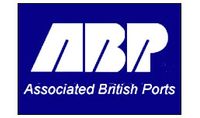

Associated British Ports
- Home
- Companies
- Maritime/Shipbuild/Water Transport
- Maritime
- Associated British Ports
Associated British Ports
The UK`s leading ports group, Associated British Ports (ABP) owns and operates 21 ports in England, Scotland, and Wales, and handles approximately a quarter of the country`s seaborne trade. ABP`s 21 ports, together with the other transport-related businesses that constitute the ABP group, form a UK-wide network capable of handling every conceivable type of cargo. ABP is backed by investment in modern facilities and equipment, and supported by experienced staff. The group`s other activities include rail terminal operations (Hams Hall), ship`s agency, dredging (UK Dredging Ltd), and marine consultancy (ABPmer). Each port also offers a well-established community of port service providers.
Company details
Find locations served, office locations.
- Business Type:
- Service provider
- Industry Type:
- Maritime
- Market Focus:
- Nationally (across the country)
- Year Founded:
- 1962
This company also provides solutions for other industrial applications. Please, visit the following links for more info:
